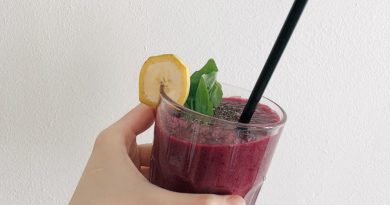Is Your Menu Vegan Friendly?
When labelling items on a menu as vegan or vegan-friendly, meat and dairy restaurants and caterers should be familiar with the complex rules for vegan cuisine.
The Challenge
More and more people are ordering vegan, and this has led to impacts for restaurant and catering owners and chefs, with major restaurant chains increasingly offering vegan options on their menus. While the percent of people who self-identify as vegans is still under 10% of the population, many people who eat meat or dairy choose to order vegan when they dine out or attend a function. Although not everyone who orders a vegan dish may be vegan, or strictly adhere to all of the rules, nevertheless, some restaurants found themselves in PR hot water when they promoted what many understood to be a vegan or vegetarian item that turned out to be neither (Burger King’s Impossible Whopper and McDonald’s French Fries are good examples of what can go wrong, and in the latter case what it can cost).
This post is intended to help chefs, kitchen staff, and owners identify the major constraints on offering a vegan item on their menu. These are: (1) Understanding the definition of vegan, (2) identifying the problematic ingredients that can turn a meat-free dish into a non-vegan one, and (3) preparation challenges. In a sense, while the requirements are different, it is similar to kosher: knowing basic principles, ingredients, and cooking rules enables one to comply with the dietary restrictions of the diner.
Mipikale is an educational resource for both consumers and professionals, and also promotes plant-based or cell cultured foods and the places that serve them. One feature in development is a listing of non-vegan restaurants that have vegan-friendly items on the menu.
Principles
As with other special diets, the first step for anyone putting a vegan item on the menu is to be sure that they understand all of the requirements. According to one of the leading vegan certifying agencies, to be described as vegan, a food must not:
- contain meat, fish, dairy, eggs or egg products, honey, sugar that has been filtered with bone char, or any animal-derived GMO’s or animal-derived genes
- be filtered, defoamed, or clarified with animal products
- be processed with any animal products or by-products
Note that this is different from the common use of the term vegetarian, which usually allows all of the above, except meat, fish, and their derivatives. More information on vegan and vegetarian definitions is in our FAQ.
Ingredients
The primary challenge is identifying the ingredients that are common in their kitchens that are not considered vegan, so that these won’t be inadvertently used in a dish described as vegan (this list omits many items found in non-kosher kitchens that would be an issue for vegans).

- Honey. Most chefs probably know that honey is not permitted in a vegan food. Even if not added directly, it can be a problem because it is an ingredient in many processed foods found in kitchens, including teas, sauces, ciders, sodas, baked goods, and of course mead.
- Sugar. Common cane sugar (pure cane white, brown, and confectioners) is not considered vegan, since it is processed using bone-char for filtration. Look for sugar that is marked vegan, organic, or from beets, all of which are vegan. Since sugar is a primary ingredient in many products purchased by restaurants, these cannot be assumed to be vegan unless marked as such.[1]
- Wine, Beer, and Hard Cider. The finishing or clarification of these products (including liqueurs based on wine) may include the use of egg whites. Even if completely removed, its use renders the product not suitable for vegans (other non-vegan methods are not used in kosher-approved productions). Fortunately, many makers use vegan alternatives, and there are lists that identify vegan beverages.[2]
- Worcestershire. Since Worcestershire sauce contains anchovies, it cannot be used in any food that is labeled vegan. Even those not marked as “Fish” next to the kosher symbol may contain small amounts of fish. There is no concept of “nullification” in vegan as there is in kashrut, so this should be omitted or replaced with a substitute in recipes.[3]
- Fortified Items. Items with added Omega-3 or Vitamin D3 may have fish or lanolin as a source, neither of which are acceptable for vegan foods.
- Miso. Miso soup may contain dashi, a fish broth.
- Dough Additives. Some additives to foods like bread dough contain milk derivatives. For example, some flavors and conditioners commonly added to pizza dough are not suitable for vegans.
- Red Food Coloring. While most US kosher agencies do not permit its use, some Israeli rabbis permit a red food coloring known by the names natural dye number 4, E-120, carmine, and cochineal. It is typically found in fruit juice, alcoholic beverages, and candy. Whether or not it is kosher, it is certainly not vegan, since it is made from insects.
- Some Good News: cellular agriculture is starting to bring to the market products like Perfect Day casein and whey proteins, and soon even a real gelatin, which are pareve and suitable for vegans. These items, indistinguishable from their animal-based counterparts, are produced by genetically modified yeasts (the products are non-GMO and appears to be suitable for vegans). These will give new tools in the chef’s arsenal, not only for vegan products, but for creative new ways to prepare kosher foods.
Preparation
The final issue is cross contamination with other meat or dairy items on the menu.
While some vegans may demand using completely separate equipment, most who dine in non-vegan restaurants accept the idea of using shared utensils and cookware, so long as the items are thoroughly cleaned to remove any meat (or dairy) residue.
However, the use of common deep fryers, grills, and griddles, or reuse of oil previously used for non-vegan items, renders any otherwise vegan food as non-vegan.
Finally, although some vegans might object to placing a vegan item in an oven or broiler at the same time as non-vegan items, unless either or both are covered, this might be simply addressed in a disclaimer if it is logistically difficult or impossible.
Creativity
Of course, providing vegan options is not just a matter of “don’t”s. Chefs have a great opportunity to be creative and offer delightful options, both in fast food and upscale locations. Just offering a vegan guest a plain salad is not likely to generate return business or positive posts on social media. There are many options for making protein alternatives, such as one profiled here on Mipikale, as well as dishes that highlight plant-based cuisine.

Mipikale is happy to promote kosher meat, dairy, and pareve restaurants that include vegan items on the menu. Add your restaurant to the listing by completing a short form and providing links to the restaurant and the menu. While we ask that restaurants submitting information to this form generally adhere to the guidelines above when making a claim that an item is vegan, it is on the honor system and we are not making any representation to readers to that effect.
NOTES
[1] Domino and C&H are not only the dominant brands in the US, they provide much of the sugar sold under private labels and generic brands. Other non-vegan brands include Savannah, Imperial, Tate & Lyle, and Refined. Vegan sugars include Michigan Sugar, Florida Crystals, SuperValu, Western Sugar, and Wholesome Sweet.
[2] A comprehensive list of vegan wines, beers, and ciders is found at Barnivore, but note that this list includes many non-kosher beverages as well as kosher ones. As with kosher, companies alter their processes so it is good to verify with the companies unless the product is labelled vegan. Also be aware that the vegan and kosher status varies by country. Other lists include vegan kosher wines and vegan beers. Among kosher hard ciders, Angry Orchard (except Crisp Apple and Easy Apple, which contain honey), Doc’s, and Strongbow are all kosher and vegan. Note that in addition to the filtering agent issue, some ciders without kosher supervision contain non-kosher grape juice).
[3] The only mainstream kosher vegetarian brand without fish I am aware of is Wa Ja Shan Organic Vegetarian Worcestershire.
I thank Chef Stuart Reichman for his valuable and inciteful comments on an earlier draft of this post.
Illustration credits: Photos by Kaboompics and Roman Odintsov from Pexels; vegan-friendly logo by starline at www.freepik.com




